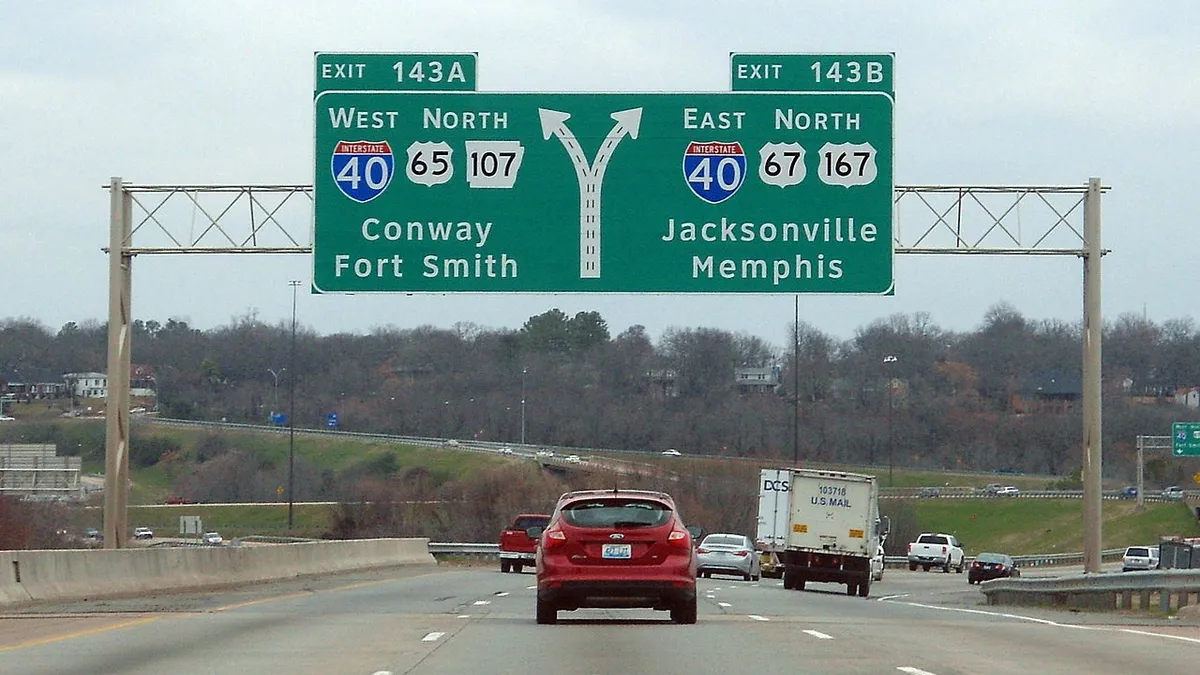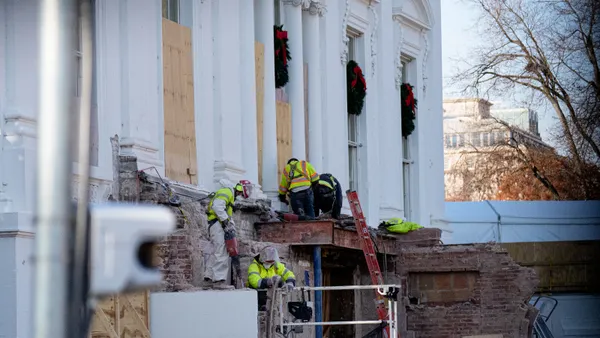UPDATE: Sept. 14, 2020: U.S. District Judge James M. Moody of the Eastern District of Arkansas has denied the Little Rock Downtown Neighborhood Association, individuals and other local groups their request for a preliminary and permanent injunction that would have stopped construction of the Interstate 30 Crossing project in Little Rock, Arkansas.
Moody found that despite having the standing to bring the lawsuit, they did not:
- Prove they would be successful in their claims that the Federal Highway Administration (FHWA) and the Arkansas Department of Transportation denied them their right to comment on the project's phased approach.
- Provide notice of a comment period after the Finding of No Significant Impact (FONSI) was issued.
- Give the public a chance to comment on new material in the draft Environmental Assessment (EA).
- Respond to "significant" public comments.
- Misled the public about the draft EA comment period.
The court also found that the plaintiffs did not prove their claims that the agencies did not follow National Environmental Policy Act (NEPA) procedures in evaluating the project, and did not present enough evidence to demonstrate irreparable harm and that stopping the project would be in the public interest.
Dive Brief:
- Neighborhood associations representing those who live close to the $982 million, 7-mile-long 30 Crossing freeway project in Little Rock, Arkansas, have asked a federal judge to issue an injunction to stop construction of the major highway initiative.
- The lawsuit claims that the defendants, which include the Federal Highway Administration, the U.S. Department of Transportation and the Arkansas Department of Transportation (ARDOT), did not comply with the National Environmental Policy Act when approving and issuing an Environmental Assessment (EA) and a Finding of No Significant Impact (FONSI).
- The plaintiffs maintain that by not following the required processes — i.e. proper information gathering, public participation and considering potential negative impacts to residents nearby — the project will cause them to suffer economically and aesthetically. They also claim their safety will be put at risk from increased traffic and noise, poor air quality, damage to the historic character of their neighborhoods and new traffic patterns.
Dive Insight:
Attorneys for the neighborhood associations claim that the injunction is necessary as work is scheduled to start this month with utility relocation. Construction is scheduled to begin later this year or in early 2021.
The 30 Crossing project scope of work includes:
- Reconstruction of the Arkansas Bridge over the Arkansas River and an improved opening for the river's navigational channel.
- Additional lines throughout the length of the project.
- Widening of a second bridge.
- Reconstruction of interchanges and ramp lanes.
30 Crossing is the largest project in ARDOT's 10-year, $1.8 billion Connecting Arkansas Program capital plan.
The project's costs, according to Metroplan, the regional planning agency for Central Arkansas and the area's Title 23 designated Metropolitan Planning Organization (MPO), were originally estimated at $631.7 million. However, that amount was later determined to be insufficient once the design-builder, Kiewit-Massman Constructors, provided its estimate. The budget, according to project officials, must see an increase of $350 million in order to complete the project.
The additional money will only come available if voters approve the Issue 1 ballot measure that would make permanent a 1/2-cent sales tax dedicated to highway projects. The measure is scheduled for a November vote.
Prior to the USDOT's FONSI determination, ARDOT conducted the EA, and its findings contradicted the allegations in the lawsuit. The agency said that the project:
- Was in a heavily urbanized area and would have no significant impact on land.
- Would provide better access to public facilities and increase emergency services response time.
- Would have a beneficial effect for the Little Rock and North Little Rock communities through improved connectivity, enhanced green space and safer infrastructure for bicyclists and pedestrians.
- Would not significantly impact minority and low-income populations or historical resources.
The Trump administration recently updated the National Environmental Policy Act (NEPA) to speed up big infrastructure projects like 30 Crossing. The new rule, which is slated to go into effect Sept. 14, allows federal agencies to sidestep environmental regulations, including NEPA, in order to accelerate approval and permitting for surface transportation, infrastructure, energy, environmental and natural resources projects. The rationale behind the new rule is that the faster these projects can get underway, the faster economic recovery will be from the COVID-19 pandemic.
The regulation is still subject to Congressional review.











